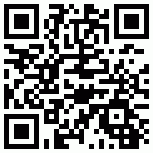Iranian President Hassan Rouhani referred to hardships following the new coronavirus pandemic saying the infectious disease has boosted the solidarity among Iranian nation.

 QR code
QR code

Presdent Rouhani says coronavirus boosted national solidarity
30 Mar 2020 - 14:04
Iranian President Hassan Rouhani referred to hardships following the new coronavirus pandemic saying the infectious disease has boosted the solidarity among Iranian nation.
Speaking during a cabinet meeting in Tehran on Sunday, Rouhani said that in addition to the suffering and pain it has caused, the virus has led to “great achievements” which should be upheld.
“Besides all the suffering, a unity was created. We should not let it fade,” he said. “We have found a valuable social capital which benefits everyone,” he added.
Rouhani also underlined the need to preserve the mutual trust created between the government and people in the course of the fight against the fast-spreading respiratory disease.
The president cited Health Minister Saeed Namaki as saying that Iran, compared to other countries, has an “acceptable” rating in dealing with the coronavirus outbreak both in terms of the treatment of patients and medical capabilities.
“Overall, the situation this week is better than last week. Nevertheless, we want to reach the favorable point step by step,” he said.
“Our situation is good when the statistics are compared with those of other countries, including in Europe and the West.”
The president further referred to his video conference meeting with senior medical experts, saying they believe that some Iranian provinces have passed the peak of the disease.
Rouhani said Iran is handling the disease under abnormal conditions because of unilateral US sanctions on the country. “While under sanctions, we have been able to resist well and run the country as good as possible.”
The president dismissed some criticism of his government's response to the coronavirus outbreak in the Middle East as a “political war,” saying it has to weigh protecting the economy while tackling the pandemic.
Rouhani said the government has to consider the effect of any mass quarantine efforts on Iran's beleaguered economy, which is under heavy US sanctions.
“Health is a principle for us, but the production and security of society is also a principle for us," he said. “We must put these principles together to reach a final decision."
“This is not the time to gather followers,” he added. “This is not a time for political war.”
Even before the pandemic, Rouhani was under fire from some quarters for the unraveling of the 2015 nuclear deal he concluded with the United States and other world powers. President Donald Trump withdrew the US from the agreement and has imposed most draconian sanctions on Iran that prevent it from selling oil on international markets.
Health Ministry spokesman Kianoush Jahanpour on Sunday reported another 123 deaths, pushing Iran's overall toll to 2,640 amid 38,309 confirmed cases.
Most people suffer only minor symptoms, such as fever and coughing, and recover within a few weeks. But the virus can cause severe illness and death, especially in elderly patients or those with underlying health problems. It is highly contagious, and can be spread by those showing no symptoms.
In recent days, Iran has ordered the closure of nonessential businesses and banned travel between cities.
Iran has urged the international community to lift sanctions and is seeking a $5 billion loan from the International Monetary Fund.
Jahanpour said 2,901 more cases have been confirmed in the past 24 hours, while 12,391 patients have recovered so far.
The new coronavirus initially emerged in China late last year and is now spreading across the globe. Worldwide, there have been more than 668,350 confirmed cases of the virus and over 31,000 deaths.
Story Code: 456911